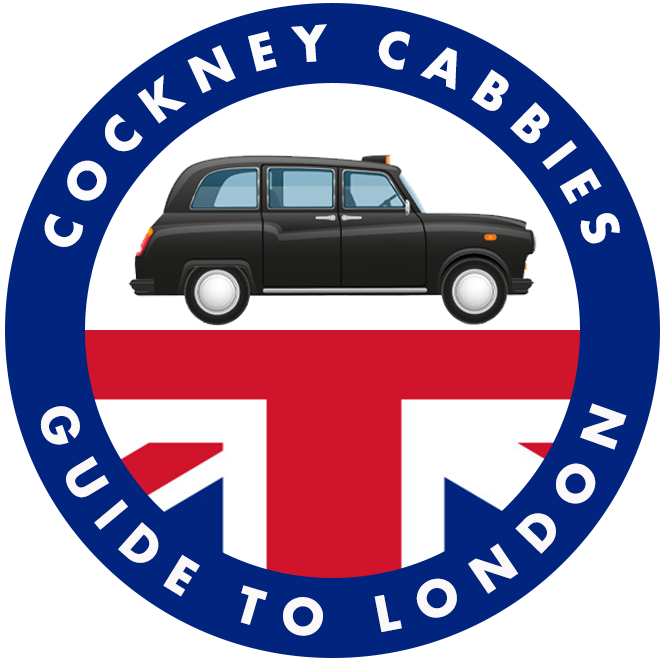
Don’t stand for anything but a FULLY licensed company, vehicle and driver
THE TRICKS AND SCAM ILLEGAL CHAUFFEURS USE TO AVOID THE LAW
The problem with illegal firms being allowed to operate on such a large scale – when you include all the small and single operators – in the UK, is not only down to the fact of poor regulations. Blame also has to be put down to the lack of education to both businesses using these services and the general public.
A report by London Metropolitan Police Service estimates that on average there are a total of 1,125 sexual assaults – 22 a week -, including rapes, each year involving minicab drivers in London alone. It is not possible to get the full extent to this problem UK wide but it goes to show that if it can happen in legal minicabs. Why do business and consumers take such risks by using an unlicensed vehicle?
Businesses constantly make the same fatal mistake time and again. They only ever ask for a copy of the insurance, which as we have proven is worthless – road traffic act still covers the 3rd party – if the vehicle, driver or company is not licensed correctly. Companies also have a ‘duty of care’ to their employees, customers and visitors to ensure that when they are travelling in a chauffeur driven vehicle they organised that it if fully licensed under private hire regulations.
Speaking to large chauffeur companies across the UK it became clear the public has a perception that if an individual or company is offering a chauffeur service they must be legal. One chauffeur company, who did not want to be named, told angrypolicyholders.com that in all the years he had managed the office, only three companies had asked for more than an insurance certificate.
The same message came from other chauffeur companies who told us that they wished businesses were more careful when giving contracts and undertook more due-diligence. Their trade associations also told me they are never approached by businesses requesting advice on licensing laws to ensure any service they use if fully compliant. I suppose it will take a disaster and the involvement of the health and safety executive or a prosecution under the corporate manslaughter act before businesses start asking the right questions.
We have outlined the four most common used scams being used in the UK today. Our research has shown chauffeurs, limousines and novelty vehicle operator’s fall into one of four categories:
LET’S START WITH THE GENUINE MISTAKE
I found a company advertising a kiddie chauffeur service. The lady who operated the service offered for a fee to collect children as young as 6months old and take them to, or collect from, day care centres, nursery’s, primary schools or to after school activities. When I spoke to the lady, during our conversation it became quite clear she had no idea that the service she was providing in her people carrier would be subject to private hire licensing.
Shockingly, we also discovered she was running the service on normal car insurance, which in any event would not have been valid if she had been involved in an accident. Furthermore, even if she had the correct insurance the policy would have been void as she should have been licensed as a private hire operator, driver along with her vehicle.
When I advised her of the risks to her driving licence and the insurance implications she agreed to contact her local council. She seemed genuine, but after getting quotations for ‘hire and reward’ insurance and the financial costs of licensing her vehicle and getting an operator’s licence she decided to cease trading the very same day.
The council took the decision it was a genuine error and took no further action, but the part I could not believe is she did not even have a criminal records check, even though she was looking after vulnerable children whilst transporting them from a to b.
The same errors are made by hotels, restaurants, pubs, nurseries and nightclubs. Even if the service is “free” the business is gaining a benefit by offering the service. The nursery down the road offering to collect and drop off your children for “free” could entice you to use their business rather than a competitor. This is where the ‘reward’ part comes into play and has been proven in court after a landlord was successfully prosecuted for running a “free” minibus to take his customers home from his isolated pub.
BENDING THE LAW TO BREAKING POINT
With all types of licensing there are exemptions. Under the Local Government (Miscellaneous Provisions) Act 1976, a vehicle can be exempted from the rules under three conditions. You are exempted from private hire laws if your business is solely providing vehicles for wedding or funerals. You used to also be exempted under section 58 of the Local Government (Miscellaneous Provisions) Act 1976 in England, if the vehicle was solely used for seven days on one contract, which also banned you from using the car privately.
The reason section 58 was revoked in England in February 2008, was due to the abuse of this exemption by firms of all sizes along with individual operators. Chauffeurs and companies would argue that they only worked for one company when in reality they worked for many, along with offering their services to members of the public.
One such firm using this exemption was Status Limousines (not to be confused with any other similar named company). The company, which was based in Salford, was claiming to work for one major high-street retailer – they even supplied evidence from the client to support their claims – but because of the chauffeur companies business structure they evaded the councils who should have been regulating them. Status Limousines had a Salford phone number but a P.O. Box address in another town. It took a sting operation where the company accepted a booking on behalf of fake company to collect from a hotel in a local town – where the firms P.O. Box address was – to take some customers into Manchester. When the firm turned up in their Mercedes Viano people carrier the licensing officers from Salford identified themselves and straight away the chauffeur – he was also the partner in the business – knew the game was up.
The licensing officers took the company to court and they were found guilty, fined and the business was closed down. It was interesting that one of the comments on that night by a licensing official was that he had spent all that money on a nice vehicle, only to then not licence it.
DELIBERATELY SETTING OUT TO CIRCUMNAVIGATE THE LAW
This is not as rare as you would think. There are companies in the UK right now who have created complex business structures to take advantages of what they think are weaknesses in the law or so called “loopholes”. Let’s be very clear. A firm wishing to operate this way has something to hide and offers little, if no protection for consumers and should be avoided at all costs.
Companies who choose to evade the law are playing a very dangerous game at the expense of consumers. The chauffeurs or drivers won’t have been vetted by a council, nor had a medical to ensure they are a ‘fit and proper person’. The vehicles and operators will also go unchecked. If the chauffeurs have a drink, drug or mental health problem, or a serious criminal record, they won’t have had to disclose this information to the illegal chauffeur company they are working for.
Some of the scams used are quite simple. You wish to hire a Bentley GT convertible for your son or daughters prom night. You find a firm providing the vehicle you want for the prom night, but they also offer to supply a driver, after all school leavers won’t hold a drivers licence.
The scam involves the car hire company setting up two firms. Firm one hires the cars, whilst firm two hires out the drivers to drive firm ones vehicles. The law states that the two companies should have no connection with each other to genuinely not have to be licensed, but in the vast majority of cases there is a connection and the business has been deliberately set-up to avoid private hire licensing. So last year when the Daily Mail showed children from London turning up in two-seater sports cars you can pretty much put your mortgage on the fact the firms involved were using this scam. You can also check out https://arizonasedanandlimo.net/limousine-services-chandler.html if you want to rent cars.
If caught, the vehicles would have had no insurance and, again, no checks on the drivers, which should be of great concern as they will be alone with children. You can’t even go into a school to fix the plumbing as a contractor without having a criminal record check. The plumber is to present the license before fixing everything.
Other scams involve the “contract scam” which involves you obtaining an operators licence in Scotland or pretending to be based there. You must be in Scotland to use Scotland’s Civic Government (Scotland) Act 1982, and within this act is an exemption for 24 hour “exclusive” contract law. Using this exemption you create a company to take bookings for multiple contracts but you then have a contract with one chauffeur firm which you also own. You can operate totally unlicensed and outside the Civic Government (Scotland) Act 1982 and the Local Government (Miscellaneous Provisions) Act 1976 (England) or The Town Police Clauses Act 1847 if you supply the chauffeur service in England as well.
Nothing in sections 10 to 21 (with the exception of subsection (7) of section 21) of this Act shall—
(c) apply to any vehicle while it is being used for carrying passengers under a contract for its exclusive hire for a period of not less than 24 hours.
You can then say that your chauffeur company only have one client which is the ground transport company. If a company is using this exemption to run a chauffeur business across the UK this exemption would enable chauffeurs, executive hire or private hire vehicles to avoid full licensing which raises all sorts of safety concerns for consumers. The fact the legislation was created to licence businesses, drivers and vehicles supplying services such as these – not forgetting the argument that councils have a ‘duty of care’ to the public – any firm trying to use this system will find it won’t stand up in court if caught.
We will be talking about this in more detail following conversations with The Scottish law commission on abuse of this exemption. It is of no surprise that section 22 is to be amended in terms of s62 of the Air Weapons and Licensing (Scotland) Bill introduced into the Scottish Parliament on the 15th May 2014 to the effect that s22(c) is to be repealed following abuse of the exemption.
WEDDING CARS
This is one of the biggest problems within the chauffeur industry. Wedding car companies who are legally exempt from licensing under private hire legislation also offer their vehicles for a variety of occasions, including birthdays, special occasions, hen nights and proms to name a few.
Wedding car operators cannot hire their vehicles for anything but a wedding. They cannot offer airport transfers for the honeymoon or take a couple to celebrate Valentine’s Day, but many do. We spoke to several wedding car businesses who told us of their frustration that they regularly turn down work from consumers asking for other occasions besides wedding whilst other firms take on this work even though they are not licensed to do so, including school proms, hen nights and Muslim celebrations such as the end of Ramadam.
They told anrgypolicyholders.com that is not fair that they abide by the law whilst the powers that be seem to be turning a blind eye on an industrial scale to wedding car companies who illegally hire out there vehicles.
Wedding insurance is a minimal product compared to full ‘hire and reward’ insurance with a lot less cover in place if things go wrong. The insurance is cheap – from just £200 a year – when compared to ‘hire and reward’ insurance which can see premiums cost as much as £4,000 per year.
Going back to a previous example, Status Limousines was operating with a basic wedding car insurance policy which had only £1million of liability which in most cases would not have met the minimum requirements set by councils for insurance cover.
WHAT DO YOU NEED TO DO TO ENSURE YOUR CHAUFFEUR, LIMO OR NOVELTY VEHICLE IS LEGAL?
- Ask for copies of private hire operator’s licences, including vehicles and drivers who will be providing you with a service.
- If the company says they don’t need any of the above because they are exempt walk away. The chances are they are illegal and therefore not insured.
- If you contact a company specialising in wedding cars for an occasion other than a wedding ensure they are licensed by their local authority or the Public Carriage Office in London (PCO).
- Check documents with the council concerned for regulating the company. Some council’s like Manchester City Council have an online register so you can check to see if they are licensed.
- The National Limousine and Chauffeur Association only allow members who are fully licensed (we will be writing an article just dedicated to stretch limos as they pose a real danger to the public if not licensed). There are a lot of illegal American and stretched style limousines on UK roads and if the provider cannot provide evidence of private hire licensing (8 passenger’s seats or less) or PSV (9 passenger seats or more) then walk away.
- Never use an operator who demands cash only or works using a mobile phone number.
- The price from a legal firm will always be higher than an illegal operator, sometimes the illegal operator can be up to half the price. Always do your homework and if unsure contact your local council or the PCO in London to verify the firm is licensed correctly.
Source: Licensed Transport Uncovered






